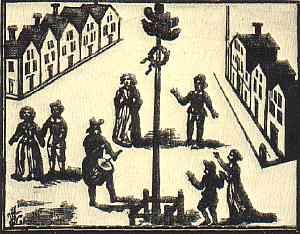Obituaries detail the life and fast times of Mark Langford, the British entrepreneur who founded The Accident Group and rode it to a fortune advertising for “no-win, no-fee” injury claimants, becoming closely identified with the U.K.’s emergent U.S.-style “compensation culture”, before the group collapsed in ignominy four years ago. When his company found itself unable to pay its bills, Langford famously sacked 2,500 employees via text message; “While thousands were left without a penny following TAG’s collapse, Langford and his wife, a fellow director of the firm, were not. As staff began ransacking the company’s offices in Manchester, the couple headed for the Spanish sun.” (“Mark Langford”, The Telegraph, Apr. 11; David Brown & Jon Clarke, “Fugitive boss who sacked his staff by text is killed in Costa car crash”, Times Online, Apr. 11).
Perhaps the most successful instigator of injury litigation in his nation’s history, Langford appeared not to have fully internalized in his own conduct the tort system’s norms about avoidance of needlessly unsafe conduct:
He was at the wheel of his red Ferrari 355 F1 Spider three years ago [i.e., circa 2000] when he hit a 73-year-old war veteran who was crossing the road. The impact that killed Bill Thornley hurled him 15ft into the air and ripped his clothes off, a jury was told at Manchester crown court. However, they cleared Langford of causing death by dangerous driving and convicted him of the lesser offence of careless driving. He was fined £1,000 but retained his driving licence.
Langford, who criticised the dead man in court for trying to cross a busy, wet road in twilight, insisted he was abiding by the 40mph limit, contradicting witnesses who claimed he was doing 55mph. Some jury members, unaware that he had a conviction for drink-driving, covered their faces with their hands on learning he had served a 22-month ban and recovered his licence only six months before the fatal crash.
(“Profile: Mark Langford”, Times Online, Jun. 1, 2003). Our earlier coverage appeared Aug. 5, 2003.
Filed under: chasing clients, United Kingdom

